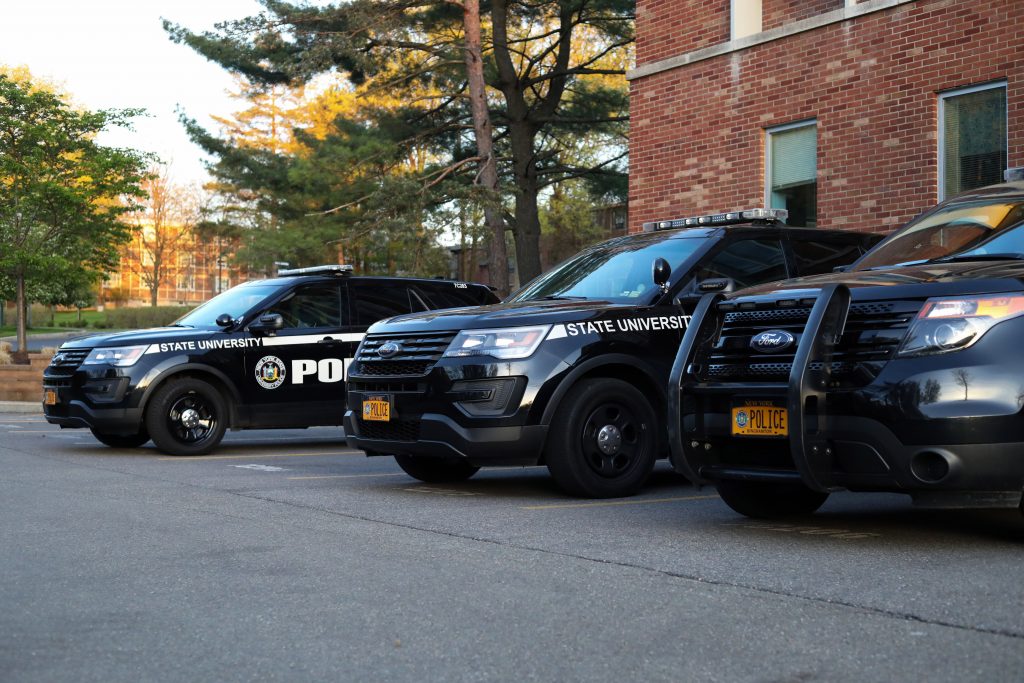The Student Assembly of the State University of New York (SUNY SA) delegate body passed a resolution at this year’s spring conference, calling for university police officers to wear body cameras throughout the SUNY system. Nevertheless, it remains unclear whether Binghamton University will implement this change.
In the SUNY system, there are currently seven SUNY university police departments that employ body cameras, with SUNY Oswego being the latest to adopt the policy. The cameras are mainly used to document traffic stops and other police encounters and act as a deterrent against any potential conflicts at the point of contact or in court, according to a statement issued by SUNY Oswego.
Body cameras were first introduced to the SUNY SA by the SUNY Oswego SA President, Omar van Reenen, a senior double-majoring in political science and biochemistry. In his time as Oswego SA President, van Reenen has pushed for security changes at SUNY Oswego and sought to see the same changes implemented SUNY-wide.
Despite the recommendation of the resolution, Harry Bittker, BU Council student representative and a senior majoring in political science, wrote in an email that there are currently not any efforts to implement body cameras at BU.
“I have not heard anything about this being in the process of being implemented,” Bittker wrote. “The resolution is [nonbinding] and merely expresses to decision makers the opinion of the delegate body on behalf of SUNY students.”
In the city of Binghamton, body cameras have been in effect for police officers since late 2015, when Mayor Rich David signed an executive order calling for the technology to be implemented. John Pelletier, chief of police at BU, wrote in an email that UPD took notice of that change, but although the possibility of body cameras being implemented has been discussed, the topic has not progressed to the next phase.
“There has been some discussion at system administration about whether body [cameras] should be deployed in police departments system-wide, but it is still in the discussion phase,” Pelletier wrote. “Ultimately, we will take our direction from system administration.”
Some students feel body cameras should be implemented sooner rather than later, such as Anjali Abraham, a senior majoring in mathematics.
“Implementing body cameras would a good idea, especially on a campus that is so diverse,” Abraham said. “This is a very conservative area so I think this would be a good way to keep cops accountable. There really isn’t a downside.”
Nationally, police body cameras has been met controversy, primarily concerning the possible invasion of privacy that can emerge as a result of the peripheral footage. Eamonn Hussie-Taylor, a junior majoring in psychology, said he recognizes this issue, but believes that if they are utilized properly, body cameras can be an asset to campus.
“On one hand, I have heard of instances of discrimination where body cams could be helpful, but increased surveillance is always a bit risky,” Hussie-Taylor said. “Overall, I do think it is a good idea if they are implemented properly.”
Adrian Doherty, a senior majoring in economics, said the benefits of body cameras outweigh the potential costs.
“I think I would be okay with them being implemented because if a ‘he said, she said’ situation occurred there would be evidence to show the truth of the matter,” Doherty said. “It wouldn’t be too much of a breach of privacy and would be beneficial to the overall greater good.”



